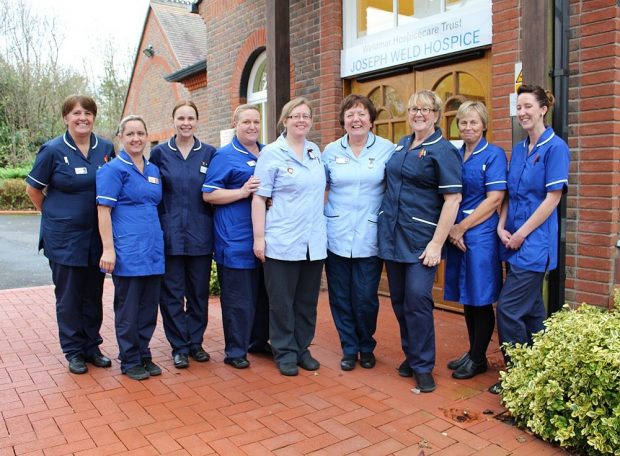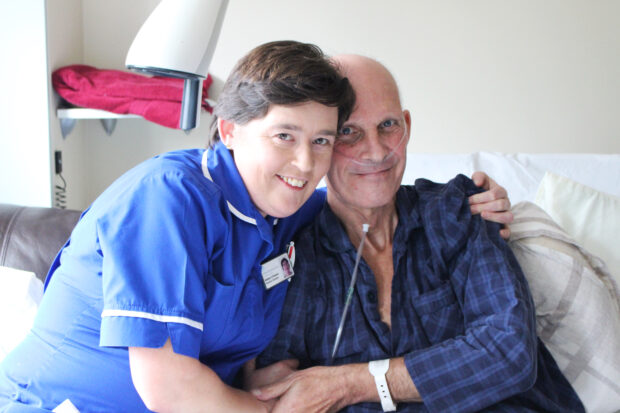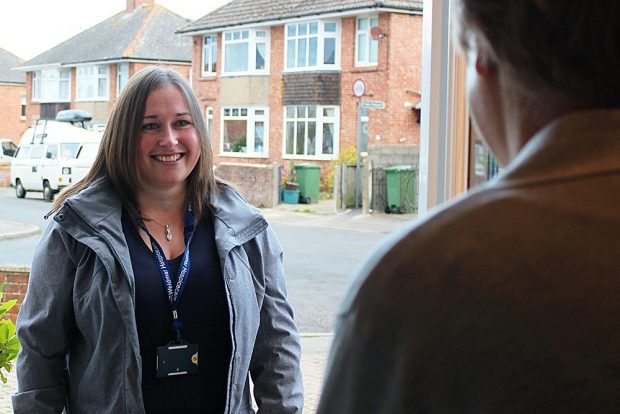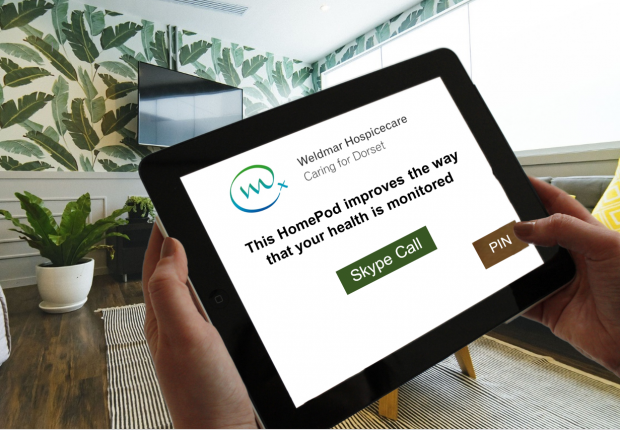DCMS’ Digital Inclusion Fund supports initiatives designing, researching or delivering digital inclusion programmes in new, creative and innovative ways. It aims to improve the lives and wellbeing of older and/or disabled people, tackling loneliness and digital exclusion.
Earlier this year, Weldmar Hospicecare Trust, an independent Dorset-based charity specialising in palliative care, was awarded funding to digitally upskill their staff, volunteers, and patients, including their families. The funding will also support Weldmar in the development of an app to aid remote monitoring of community patients. In this blog, we hear from Sandra Smith, Business Development & Commissioning Manager at Weldmar Hospicecare Trust, on the project so far.

It has been a very busy first few weeks since we were awarded funding from DCMS’ Digital Inclusion Fund, enabling us to nurture the digital skills of our staff, volunteers, and patients, as well as their loved ones. This funding followed an initial research stage during which we connected with a variety of other hospices, technology providers, and university researchers in order to evidence the viability of our proposed model of delivery.
Weldmar Hospicecare
Weldmar Hospicecare specialises in palliative care. This is care given to help people live as good a life as possible when their illness cannot be cured.
Our aim is to provide end-of-life expertise and support for people living in Dorset. We care for patients and their families, not just symptoms and illnesses. We work closely with the NHS, as well as social services and voluntary organisations. All of our care is provided free of charge, and we support over a thousand people each year.
Our services are delivered across a predominantly rural area of North, West, and South Dorset. The area also has a higher-than-average and increasing older age profile, and these factors combine to create greater difficulties in terms of our ability to deliver our services, as well as social isolation for our patients and their loved ones. We have therefore been exploring ways to combat this, including the use of digital technology.

Remote monitoring of patients
Our project involves a range of different activities, but focuses on the development of a monitoring app which will enable our patients to record their symptoms from their own home on a daily basis using their tablet, phone or computer, and allow our nurses and other clinicians to monitor these symptoms remotely. There will also be the facility to undertake clinician-to-patient consultations remotely via video calling technology.
This type of remote monitoring is commonly referred to as ‘telehealth’ and it is of particular benefit in our location due to our rural geography. Although telehealth is increasingly being used to monitor patients with long-term conditions, it is still a relatively new concept within a palliative care setting.
Since our project received funding in July, we have been working with app development suppliers, and have recently awarded the contract to health technology company Inhealthcare to develop the app, with implementation planned before the end of the year.

Increasing digital skills and confidence
We are aware some patients or family members may not previously have made much use of digital resources, or this project may even be their introduction to using digital technology. Our aim is therefore to increase skills, confidence, and interest in exploring the wider opportunities and benefits of digital resources. From a previous pilot, we found that even those who were inexperienced or lacked confidence in using technology found the process of daily score input to be easier than they imagined.
The patients also found it to be a useful tool to look back over their scores, enabling them to review their condition themselves, with their nurse, or with family members or loved ones. One patient commented "since being on telehealth it has given me confidence and peace of mind. I would panic a lot before, but this has stopped that."
Supporting digital inclusion
Alongside this we have been working on a number of other activities, which will enable our staff, volunteers, patients, and their loved ones to improve their skills and confidence to access and use digital resources in their daily lives.
One of these activities will be the development of digital skills training sessions shaped to suit our client groups. These will be delivered by a professional digital skills trainer in different sessions throughout our organisation, such as at our bereavement groups, day services, and information programmes, and will include patients, their family members and loved ones, staff and volunteers.
We have also joined the Online Centres Network and have begun to complete their online sessions, which will also provide useful tools to enhance staff members and volunteers’ skills and confidence to support patients and their loved ones on their own digital journeys.
Another avenue we are working on is to assist our patients and their loved ones to search for appropriate apps to provide additional health and care support. There is a plethora of health and care apps available through various app stores, and we are currently working with ORCHA who are curating an online library of tested apps to facilitate this process.
We have also ensured we can measure the success of the project by engaging an independent evaluator to undertake baseline and ongoing evaluation throughout the project. This will also ensure we can share our learnings more widely.

Future plans
We are excited to see the developments over the next few months as each of these activities progress. Once the monitoring app is developed and rolled out to patients, we will pick up discussions with other hospices around the UK to see if this is something they may also like to use with their patient cohort, so the benefits may hopefully spread even wider.
We hope that digital skills training will become a regular feature within our patient and carer programmes in the future.
If you would like to find out more, or get involved as a volunteer, please visit our website.